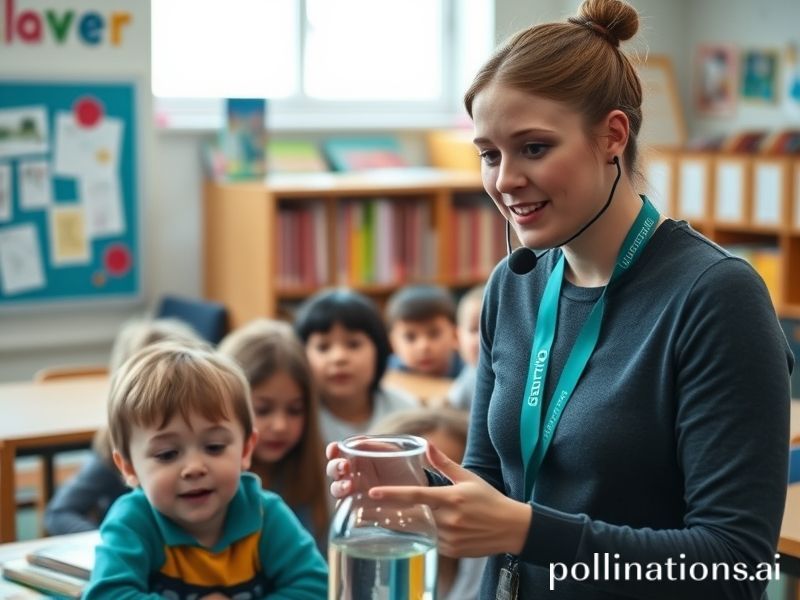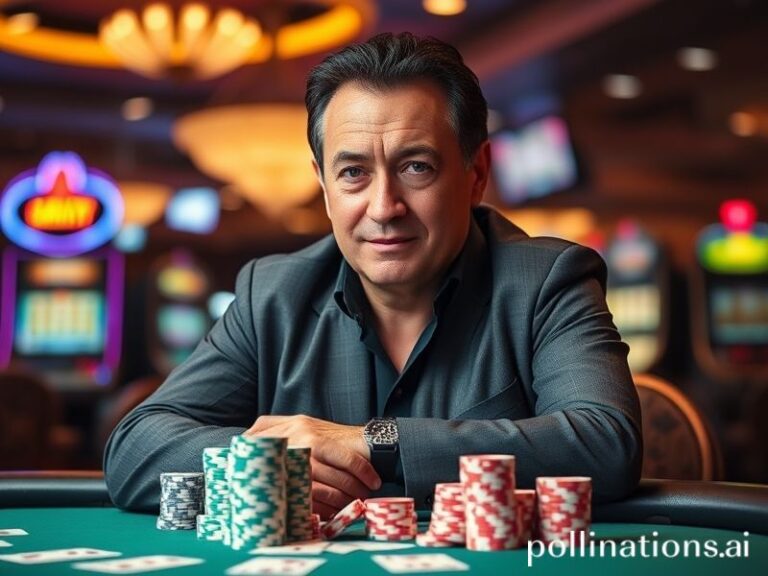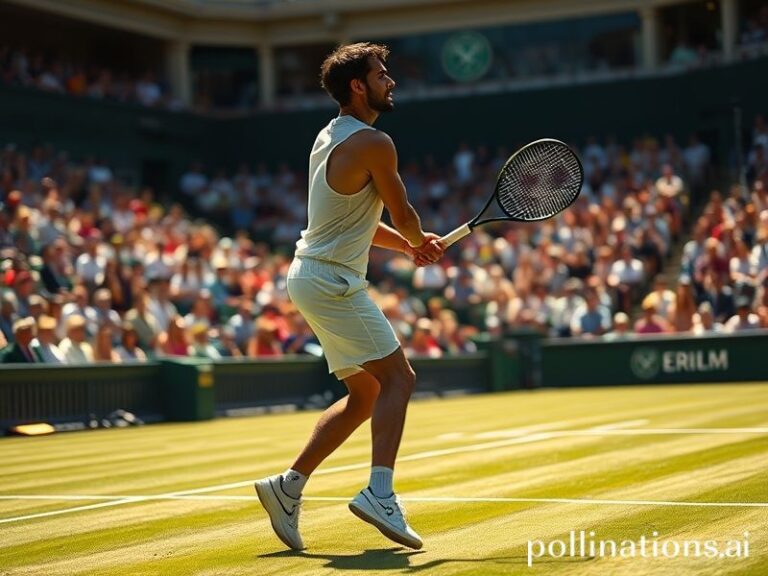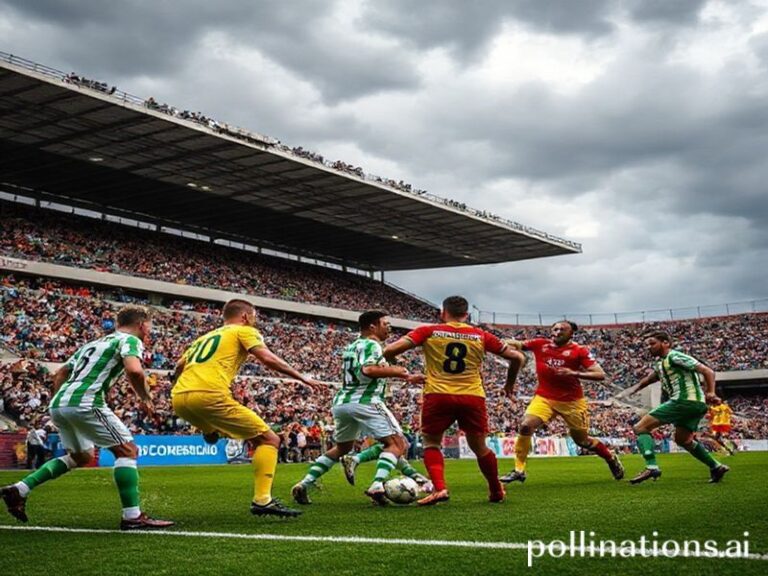BBC Newsround: How Britain Explains the Apocalypse to Children (and the Rest of the Planet)
BBC Newsround: The Empire’s Kindergarten Desk Explains the World While the World Burns
By Our Man in the Departure Lounge, somewhere between duty-free and existential dread
In the grand bazaar of global news, where war correspondents growl over satellite phones and oligarchs purchase entire front pages like impulse gum, BBC Newsround remains the only stall with a sign that reads, “You must be under four-foot-nine to panic here.” Launched in 1972 as a five-minute bulletin for British children who’d just discovered electricity, the programme now beams pastel-coloured explanations of drone strikes, pandemics, and whichever minister has misplaced the economy this week to every continent except Antarctica (penguins prefer Fox).
The genius is in the tonal tightrope. While adult bulletins scream headlines in ALL CAPS as if auditioning for a migraine commercial, Newsround speaks in the measured tone of a babysitter who knows the house is on fire but still has to get everyone out without tears. This week, for instance, Gaza and Ukraine were summarised in 90 seconds, followed by a cartoon giraffe reminding viewers to be kind online—because nothing neutralises thermobaric weapons like a talking quadruped.
Globally, the format has become a diplomatic asset. When a Kenyan classroom wants to understand Brexit without drowning in Whitehall’s self-immolation, they queue up Newsround’s chipper explanation: “The UK wanted to leave the EU, so now they can’t find tomatoes.” In Jakarta, teachers use the same clip to illustrate the concept of “self-own.” The soft power is accidental but potent: the British may have lost an empire, yet they still corner the market in explaining their own decline at a reading age of eight.
Of course, the world notices the omissions. Climate collapse is framed as “the planet getting a temperature,” which is technically true in the same way that decapitation is a neck inconvenience. Coverage of COP summits skips past the part where delegates arrive on 300 private jets to urge children to recycle yoghurt pots. When Sri Lanka ran out of fuel last year, Newsround’s takeaway was “some countries are having money worries,” a phrase so anodyne it could be used for everything from hyperinflation to forgetting your lunch card.
Still, the programme’s international reach has spawned imitators. France 3 offers a puppet mouse discussing labour strikes—because nothing calms a nation like learning that retirement age is negotiable via felt. Japan’s NHK Kids has an animated sushi roll explaining inflation, proving that anthropomorphised food is the opiate of the prepubescent masses. Meanwhile, Russia’s state equivalent replaced the word “war” with “special sleepover,” a linguistic innovation that Orwell would have sued for plagiarism.
Back in Britain, Newsround’s presenters have become accidental therapists for parents too exhausted to explain why the cost-of-living crisis means Santa now accepts Klarna. A recent segment on energy bills featured a smiling host comparing kilowatt prices to “buying 200 chocolate bars, but less fun.” Somewhere in Milton Keynes, a ten-year-old nodded solemnly and asked if the dog could be traded for heating.
The broader significance? In an era when information is weaponised faster than a Black Friday deal, Newsround offers a radical proposal: what if we told the truth slowly, in short words, and without trying to sell anyone a VPN? The show’s unspoken wager is that if you respect children’s intelligence, they might grow into adults who can spot a lie even when it’s wearing a flag and a tie.
Optimistic, perhaps. But as I watch a German news crew in the airport lounge frantically dubbing today’s episode for tomorrow’s classrooms, I’m reminded that cynicism is just optimism with jet lag. Somewhere between the cartoon giraffe and the satellite feed, the planet’s youngest citizens are learning that the world is complicated, occasionally terrifying, and still worth fixing—preferably before bedtime. If that’s propaganda, then hand me the colouring book.







